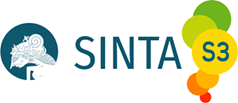An Exploration of Mathematical Elements in Sasambo Culture as a Resource for Ethnomathematics Based Learning
DOI:
https://doi.org/10.33394/mpm.v13i1.15704Keywords:
Ethnomathematics, Sasambo Culture, mathematics learning, traditional architecture, weaving arts, traditional gamesAbstract
This study aims to explore the mathematical elements embedded in Sasambo culture (Sasak, Samawa, and Mbojo) and their potential as learning resources for ethnomathematics-based mathematics education. Using a qualitative approach through literature review, the study analyzed scientific articles obtained from systematic searches on Google Scholar with keywords related to Sasambo ethnomathematics. The findings reveal that Sasambo cultural heritage contains a wide range of mathematical concepts, including plane and solid geometry, patterns, symmetry, geometric transformations, measurement, and problem-solving strategies. These concepts are reflected in traditional architecture such as Bale Tani, Uma Lengge, and Istana Dalam Loka; in the geometric patterns of Sasak and Tembe Nggoli weaving arts; and in cultural activities and traditional games such as Perisean, Barapan Kebo, Nyongkolan, and Dengklaq. The study highlights the potential of integrating these cultural elements into mathematics learning to make it more contextual, meaningful, and engaging for students. Additionally, this integration fosters students' cultural identity and appreciation of local wisdom. The study concludes that systematic efforts are needed to develop culturally-based instructional materials and to provide teacher training on ethnomathematics integration. Such efforts will not only improve students’ mathematical understanding but also strengthen their connection to local cultural heritage, making mathematics learning more relevant to their daily lives.
Downloads
Published
2025-06-30
How to Cite
Yuntawati, Y., & Aziz, L. A. (2025). An Exploration of Mathematical Elements in Sasambo Culture as a Resource for Ethnomathematics Based Learning. Media Pendidikan Matematika, 13(1), 509–528. https://doi.org/10.33394/mpm.v13i1.15704
Issue
Section
Articles
Citation Check
License
Authors who publish with this journal agree to the following terms:
- Authors retain copyright and grant the journal right of first publication with the work simultaneously licensed under a Creative Commons Attribution License that allows others to share the work with an acknowledgement of the work's authorship and initial publication in this journal.
- Authors are able to enter into separate, additional contractual arrangements for the non-exclusive distribution of the journal's published version of the work (e.g., post it to an institutional repository or publish it in a book), with an acknowledgement of its initial publication in this journal.
- Authors are permitted and encouraged to post their work online (e.g., in institutional repositories or on their website) prior to and during the submission process, as it can lead to productive exchanges, as well as earlier and greater citation of published work (See The Effect of Open Access).
Â













